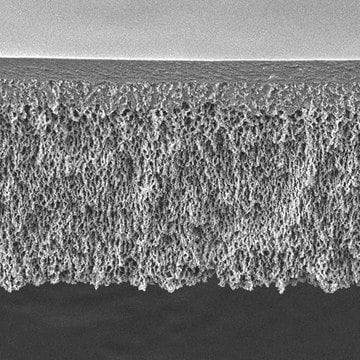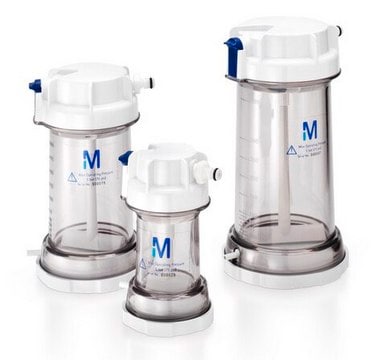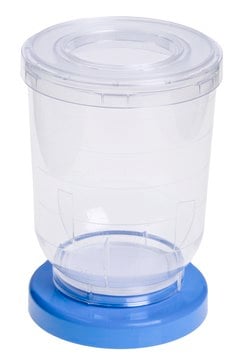PLHK07610
Regenerated Cellulose Membrane Filter, 100 kDa NMWCO
Ultracel®, filter diam. 76 mm
Synonym(s):
Ultrafiltration Discs, 100 kDa NMW, Ultrafiltration membrane discs
About This Item
Recommended Products
material
regenerated cellulose membrane
Quality Level
manufacturer/tradename
Ultracel®
technique(s)
protein clean-up: suitable (desalting)
protein purification: suitable (concentration)
filter diam.
76 mm
filtration area
41.8 cm2
matrix
Ultracel®
pore size
100 kDa NMWCO
shipped in
ambient
Looking for similar products? Visit Product Comparison Guide
General description
Application
- in Millipore stirred ultrafiltration cell (MSUC) for glucose/ gluconic acid (GA) conversion catalyzed by glucose oxidase (GO)
- with Amicon® stirred cell model 8200 for microbial extracellular vesicles (EVs) isolation of large volumes cultures
- in the synthesis of polydopamine (pDA)-modified iron oxide core-shell nanoparticles (IONPs)
Linkage
Legal Information
Storage Class Code
11 - Combustible Solids
WGK
WGK 1
Flash Point(F)
Not applicable
Flash Point(C)
Not applicable
Regulatory Listings
Regulatory Listings are mainly provided for chemical products. Only limited information can be provided here for non-chemical products. No entry means none of the components are listed. It is the user’s obligation to ensure the safe and legal use of the product.
JAN Code
PLHK07610:
Certificates of Analysis (COA)
Search for Certificates of Analysis (COA) by entering the products Lot/Batch Number. Lot and Batch Numbers can be found on a product’s label following the words ‘Lot’ or ‘Batch’.
Already Own This Product?
Find documentation for the products that you have recently purchased in the Document Library.
Customers Also Viewed
Our team of scientists has experience in all areas of research including Life Science, Material Science, Chemical Synthesis, Chromatography, Analytical and many others.
Contact Technical Service





